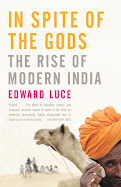As it were..
It would seem commonly sensible that the WTO would take it upon itself to educate its students {developing countries} with the lessons learned by the graduating class { developed countries} in order to legitimize the principles of liberal trade that it promotes. Rather than prescribing sweeping measures such as ' open up markets', it would be more worthwhile to educate {developing nations}in details such as efficient export processes and innovative enterprise management systems.
The differences described above are intended to be somewhat resolved with what the WTO calls technical assistance,. One of the conditions of the Uruguay Round of WTO negotiations was that developing countries would be offered increased technical assistance to make up for the differences between their technical capabilities and those of developed countries. While this sounded promising, the reality is that the budgeted amount is $7,000 per developed country. Just what this grossly insufficient amount can provide for is dependent on the respective state of course, but it can be agreed upon that this amount is not sufficient to close the technical gap between developed and developing countries. . Kapoor describes these technicalities as "structural inequalities that result in asymmetrical deliberative capacities: (530).They are structural, in that they are inherent features that are borne from the combination of social, economic and political facets of nations-states. Recently, the WTO decided to discontinue paper publication of a large portion of its information, in favor of publishing the information online. This is a commendable effort towards reducing the environmental impact of its operations, which nonetheless does not consider the accessibility of the internet.
Poor, developing countries have haphazard telecommunications infrastructure that makes consistent internet access difficult to attain Publication of important information on the internet means that those who have no access to it will be uninformed and thus become less effective in negotiation. All in all,nations have their unique educational systems and are economically developed to varying degrees, nonetheless if negotiation of trade agreements is to be fair these inequities must at least be considered. Ignoring them leads to an imbalance of negotiation power in procedure, and on the grand scale, to the infiltration of power politics into the WTO.
Those who do not recognize the inequities in WTO negotiation procedures, or simply do not believe that they need to be addressed might argue that the WTO is not commissioned with matters of justice, only those of trade negotiation. They might point out that the WTO is a platform for trade agreements and not primarily a judicial body purposed with settling moral or ethical injustices. Based on Thomas Franck's review of legitimacy in global institutions, Albin distinguishes between justice and legitimacy, saying that "justice is substantive fairness concerned with the distribution of benefits and burdens, and often with change" (759). As such, justice and legitimacy are two separate elements, albeit important ones, which must combine to create fairness. Franck intimates that the task of fairness is to integrate or balance both justice and legitimacy. Based on the global social, economic and environmental ramifications of outcomes, it is essential that an organization charged with facilitating international trade agreements be fair. Having established the meaning of legitimacy how it is built through procedural justice, we can examine justice in and of itself, so as to see how the pair are incorporated to create fairness.
TBC..
TBC..
Works Cited
Albin, Cecilia. "Using Negotiation to promote legitimacy; an assessment of proposals for reforming the WTO." International Affairs 84.4 (2008): 757-75. Print.







No comments:
Post a Comment